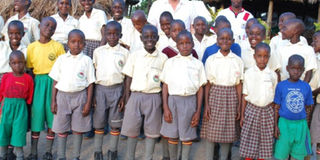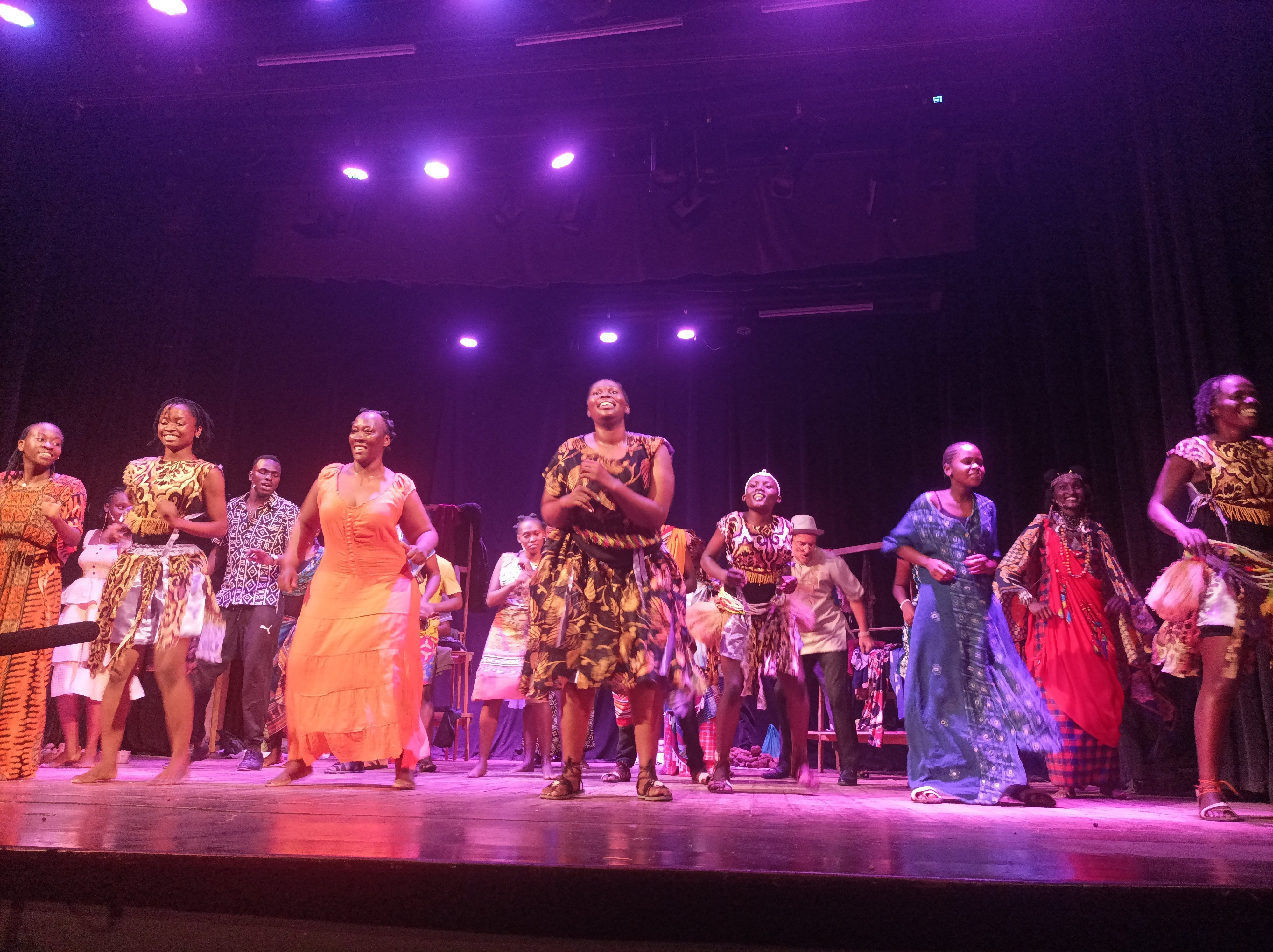His mission is to educate orphans

Hendrik with some of the pupils at the school. He says for these children to achieve their dreams, they must study. This is why he is passionate about the school. PHOTO BY GABRIEL BUULE
Arriving at Williams Hill Nursery and Primary School in Masaka on a sunny Thursday, I am greeted by a gathering of parents and teachers in the school’s main hall. They are all attentively listening to Roger Munawa, a lecturer at Kampala University in the faculty of Tourism, who is also the co-ordinator of Williams Foundation.
Munawa’s speech is centred on evaluating and assessing the pupils’ performance and a number of parents are faulted for rarely fulfilling their responsibilities.
As a school, Williams Hill seats on six acres at Bulayi village, Mukungwe Sub-county in Masaka District. Today, it accommodates 360 pupils. These are less advantaged children who Wilhelm Joset Hendrik, a German national, built the facility to cater for.
The beginning
“Towards the end of 2001, I sent some money to a one Harriet Justine Nantale, my then wife, to build a school for underprivileged children. She had shared with me some of their stories and the urgent need for help from a good Samaritan,” says Hendrik.
“We started with three classrooms and we had no rooftop. But because the children whom we started with were humble and loved education, I was forced to save from my little earnings and later expanded the school,” adds Hendrik who first came to Uganda in 1989.
He came after signing a contract with the German Emergency Doctors as a volunteer to help stranded people and refugees in hospitals: Aduku and Ruwala in Lira District. But later, he left Uganda in 1991 and started a factory dealing in metal works and computerised machines. Through this factory, Hendrik says, he was able to save money which he used to build the school currently employing 45 teachers.
“When I realised that the school has made an impact in the community, I rallied my friends, churches and well-wishers to contribute towards getting scholastic materials for the children,” he says.
Fees
Some of these children attend lessons coming from boarding section while those whose next-of-kin are nearer to the school are eligible to come from home.
Hendrik says for pupils whose parents pay school fees, the charges vary for boarding and day scholars. Those in the boarding section pay Shs300,000 whereas day scholars pay between Shs70,000 to Shs100,000.
“The prices are negotiable for parents who have the resources for their children. Sometimes my head teacher assesses the state of the children and their parents then decides whether to reduce on the payments or proceed with them,” he explains.
Hendrik, 58, says as a young man, he left school at 14 years and proceeded with gaining skills and mentoring in metal works factories.
“Education is the key to success. It does not matter whether you are old or young. When you talk to some of the pupils, you will discover that they have dreams,” he shares.
“Some want to become teachers, others doctors and lawyers but how will they achieve this if they do not study?” asks Hendrik, who parted ways with his wife Nantale and handed over the responsibility of taking care of the children and the school to Munawa. Munawa, shares that he first met Hendrik in 2015 and he has been committed to his promise of taking care of the children and the school.
“In the beginning I did not know that we could make it. In Masaka, there are a number of underprivileged children who need education, especially in the nearby villages but those willing or able to offer assistance are few,” shares Munawa, also the managing director Kingfishers Camping Site Resort in Kalangala District.
“When I took over the responsibility of looking after these children, I had to ensure that they get all the necessary requirements to attend the school,” he says. “Initially, their performance was poor. The teachers we had were not that competent as we were new in the education sector but because the school has grown, we now have qualified teachers who are doing a good job,” he adds.
Challenges
However, Munawa says, much as they have been doing this for the good of the community, they have faced endless criticisms from some area politicians who have threatened to close the school.
According to Gorret Lutunda, a parent, Hendrik’s initiative has given the community a moment of relief as far as education is concerned. “My child has improved in writing. She’s a regular reader at the age of five and I am very happy and encouraged,” Lutunda, shares.




